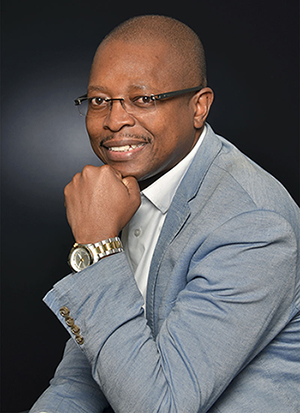News & Events
Re-engineering student-management relationships

According to Chalufu, the recent student protests highlighted the significance of a proper functioning Department of Student Affairs, which must be deeply rooted in student needs. He said many institutions neglect the role of student affairs and this is a worrying phenomenon that breeds instability and disconnection between management and students as a primary stakeholders.
A calm Chalufu spoke in a soft voice while ensuring that no words he uttered were misconstrued. In between our interviews, he would pause to ask if I had captured his point correctly. Interestingly, his vast knowledge about higher education features prominently in every answer he gives.
He said there was an emerging trend across institutions where departments of student affairs are seen as peripheral to the life of universities, and this undermines the central role played by student affairs to ensure the well-being of the institutions.
Chalufu argues that the role of the Dean of Students is immeasurable and it plays a pivotal role in the university.
“Without a doubt, the Office of the Dean of Students is seen by students as a critical office in terms of advocating, fighting for, and supporting their cause during their time at the institution,” he said.
Chalufu said his office is going to be a useful ally of students in ensuring quality services and timeous response to student queries. “There is a need to position the office of the Dean of Student as the “go-to office” for all students where their needs and challenges are effectively addressed.”
The new dean also wants to see transformation as an overarching feature that must define the nature of student support services, and professionalisation of student affairs as the first step towards accelerated quality student support and repositioning the Department of Student Affairs as a vanguard for students’ needs.
“Apart from efficient quality service provision, services need to be easily accessible to students. Student Affairs staff should be accessible: schedule visits to learning centres together with other support departments, to expose students to available services,” he said.
He said to tackle transformation would require a structured, integrated, collaborative and well-coordinated student development and support strategy, which had to build a stronger student support system that addressed various aspects such as life skills and entrepreneurial skills, and also serve as a preparation for students beyond university life.
Chalufu is not new in an academic space. He brings on board vast experience of more than a decade in higher education, which includes lecturing. He holds various qualifications, including a PhD in Education Management, Law, and Policy Studies from the University of Pretoria and a Master’s in Education passed with distinction from the University of Bristol in the United Kingdom.
Chalufu makes no secret of his passion to work with students. He also want to reposition the Department of Student Affairs. He said this will require a certain calibre of workforce—people who will understand their role and show unquestionable commitment to and diligence in serving students.
“We need well-qualified professional and support staff who are fit for purpose, a staff who not only possess the necessary skills, knowledge and expertise, but also with the right attitude, an ethic of care and passion for people’s development.” he said.
He added that he would work closely with student leaders and this would be accompanied by vigorous support and training activities. He believes that this will ensure meaningful student engagement and involvement of students in participatory decision-making and it will also help to develop future leaders who will play a significant role beyond the university.
*By Percy Mthombeni
Publish date: 2017/05/11
